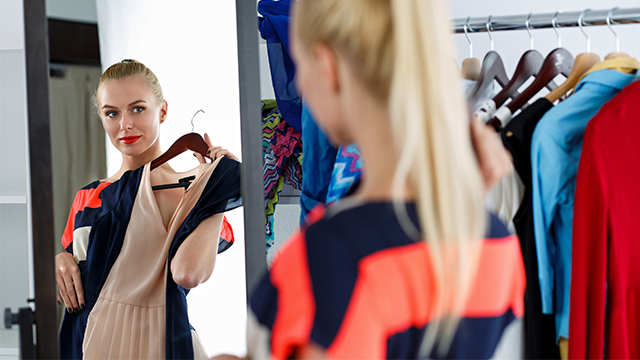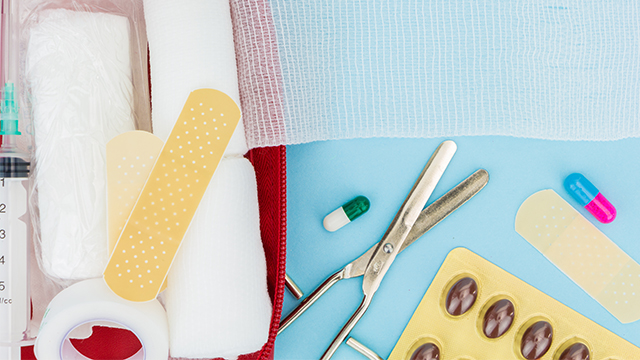10 First-Day-of-Rehearsal Essentials
Written by Meghan Mitchell
August 30, 2017
There are so many things to remember on that first day of rehearsal. Between the script and score, directions to the rehearsal space, and wearing the right footwear on the first day, you never want to seem ill-prepared when trying to put your best foot forward. Whether it’s remembering hair ties, a pencil for notes, or a breath mint to help in that first intimate scene, it’s always best to impress on your first day of ‘school’. The hardest part is always remembering what to bring before you get to the rehearsal space!
1. To bring or not to bring?

That is the question! Remember the important items—script (physical or electronic copy), pencil to take notes, and a highlighter are pretty standard for your first day. If there is any new-hire paperwork you need to have with you, bring that as well! Think of first day as an ‘orientation’ of sorts. Do you need your passport or social security card for official documents? Are you planning on receiving a score or script once you arrive? Know what is expected of you and what you are expecting on that first day before you get to rehearsal.
2. Bits and bobs

Is first rehearsal just a meet and greet? Or a full 8 hour choreography rehearsal? Hopefully you will have an idea before you walk in the rehearsal hall. Just in case, it is best to have bobby pins, comfortable footwear that is meant for rehearsing (i.e. close toed shoes), and a water bottle ready to go at all times. You never know what might get thrown at you, even on that first day. You wouldn’t want to be stuck in flip flops while learning the opening number to 42nd Street.
3. Lunch?

Equity standard is to have water and coffee accessible to performers, but everything else would be on the actor themselves to bring. You may think your first rehearsal is simply a read-thru, and you end up blocking most of Act 1. Just in case, it is best to have some snacks with you to keep your energy going if you don’t have time to leave and take a proper lunch break. Trail mix, protein bars, or even some fresh or dried fruit can keep the body and mind going whether the day is long or short.
4. Where am I going?

No matter if you’ve been to the rehearsal space a million times, or it is your first time there, make sure you have a clear idea of where you need to be and what time. As they say, 10 minutes early is on time, and on time is actually late. We all have GPS on our phones these days, but are you certain of rush hour traffic while driving to rehearsal? It’s best to map your route to find the ETA of your trip in advance so you’re not caught off guard and subsequently, late, to your first day.
5. Dress to impress.

First rehearsal days are typically just to get oriented, but many directors to like to delve in on that first day. Just in case, it is best to come looking your rehearsal best, but have some comfortable clothes you can move in packed with you. You might be asked to do something that would be quite uncomfortable in a dress or dress pants. Have a t-shirt and movement pants packed just in case!
6. Off book or not?

The age old question—should I be off book for first rehearsal? Hopefully, this is a question you are thinking of long before that first day. Get in touch with your director beforehand and ask. Either way, if you work best off book first day, by all means do so! If you are a kinesthetic learner, and need blocking, that’s okay too! Some theatres rehearse for two weeks and then open. There is no time to vacillate on memorizing in this case. Know the project, know the expectations of the director, and come in as prepped as you can be.
7. Courtesy items

As a performer, you are your product. So please take care of yourself for rehearsals. Courtesy items for you, and your fellow cast mates, are always deodorant and breath mints. Some people are sensitive to sprays and perfumes, so take it easy on the Axe. However, a clean performer in close quarters, in a sweaty rehearsal hall, will help you make friends rather than enemies. Gum is sometimes frowned upon by directors or stage managers, so mints are good to have on hand to keep you feeling fresh instead.
8. Man, I wish I had _______.

Your first rehearsal may be a long singing day, it could be a long dancing day—whatever it may be, come prepared with what you need, rather than regret it later. If you’re singing, bring cough drops and a big water bottle. 8 hours of vocal rehearsal is rough on any performer! If you’re dancing primarily, bring Band-Aids, Tiger Balm, or even ibuprofen. There’s nothing worse than getting halfway through your day wishing you had something you could have had the foresight to bring in the first place.
9. Can I borrow…?

Do you ever find yourself borrowing the same item at rehearsals? Whether it’s a hair tie, an eraser, an umbrella to walk between rehearsal spaces, or a jacket because you’re unexpectedly cold; keep a list of the things you might forget, especially your first day. It’s best to have it with you, and then you can be the cast mate to help others when they have forgotten it too!
10. Bring you!

The most important aspect of the first rehearsal is to just be you! Make sure you can get a good night’s sleep, have your morning coffee, and be ready to put your best foot forward on that first day. Show them why the hired you, and show them your enthusiasm for the project at hand. Sometimes it’s inevitable—you had a red eye flight or had to drive through the night to make it that first day, but take a minute to breathe and enter that first rehearsal positively. Your professionalism and passion should always shine through no matter what.
Need some advice? We’ve got you covered.
- 6 Amazing Non-Theatre Classes for Determined Theatre People
- How to Get Your Acting Chops into Terrific Shape for Audition Season
- Not Clicking With Your Character? 5 Steps for Connecting to Your Role
- 5 Vital Questions to Ask When Establishing a Character
- Creating a Character Dossier in 8 Steps
- 5 Creative Ways to Work on Character Development
- 10 Basic Rules of Stage Combat (That Keep Everyone Safe)
- 5 Advantages of Learning Stage Combat
- Don’t Be a Diva: Common Pitfalls and How to Avoid Them
- 9 Articles of Clothing Every Thespian Should Keep In Their Wardrobe
- What Makes an Actor Website WOW?
- “Is my attitude not getting me roles?” And Other Essential Questions for Actors
